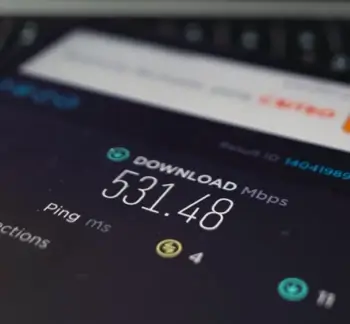Internet Speed Test
Slow Internet speeds are annoying for any user. However, for those who frequently game online, make video calls, or download large files, it’s especially important to figure out what the issue is, beginning with an Internet speed test. Use the tool to check Internet speed and determine the quality of your Internet connection.
What is an Internet speed test?
An Internet speed test is different from a WiFi speed test; an Internet speed test measures your device’s connection speed and quality. It shows you the fastest download and upload speeds as well as burst rates. It measures the Internet connection speed, upload speed, and download speed from your location to the location of a chosen server. TCP/IP degrades over distance, so the server closest to you has been automatically chosen when performing a test.
The fast test works as a tool as well. It can help determine if you have a problem with your broadband link. If you experience slow loading speeds on a frequently visited website, do a speed test to determine whether the issue is your modem or router’s connection or the server where the website resides. If you get fast speed test results that line up with past results, then you know the problem originated from the website and not your Internet or WiFi.
A broadband speed test helps users determine if they’re receiving the quality of service they’re paying for from their Internet service provider (ISP). If you pay every month for high transfer rates and minimum packet loss, but you can’t load basic sites, this is an issue. An online Internet speed test or Internet speed test app can determine whether your ISP and Internet plan are doing the job.

How do I test my Internet speed?
Many users experience Internet issues and wonder, "How do I test my speed?" The process is simple; use an online tool to check Internet speed. When you run a speed test, the website will transmit a file and determine the duration required for that file to reach its destination. The broadband speed test reverses to check the time your link takes to download onto your computer.
At the end of the free speed test, you’ll be able to see a graphical representation of the average rate of data exchange for both your upload and download speeds, showing the maximum speeds you're currently operating at.
Upload and download rates are important. However, with a true Internet speed test, it also tests the ping rate. Known sometimes as latency or lag, ping is the millisecond measurement it takes for a small piece of data to travel from your computer, reach its location, and travel back to you.
Ping rate is the best test of quality for your Internet connection; the lower the ping number, the faster your link. While a low ping rate is not necessary for day-to-day surfing, if you enjoy online gaming or frequently download large files, a fast ping time is very essential.
Be aware that your test results may vary at different times in the day due to network congestion, which affects your Internet. Therefore, to get an accurate reading and a good idea of your bandwidth burst averages, run the test to check your Internet speed at different times of the day.
What should my Internet speed test results be?
Your ideal speed test results depend on what you primarily use your Internet for. Users use their device for basic tasks like email, SD video streaming, and social media should aim for results of around 2 Mbps when they run the test. HD streaming, video chats, and photo uploads require fast speed test results closer to 10 Mbps, and 4k streaming and online gaming requires fast speeds of 25 Mbps or more.
Is 100 Mbps slow or fast?
An Internet speed of around 100 Mbps is considered moderately fast. For users who have higher-than-average online streaming or gaming requirements, try an Internet speed of 100 Mbps or more.
Are free Internet speed tests accurate?
Your broadband speed test results will always vary depending on several factors, including the time of day and your computer’s configuration. However, if you find a speed test on Google, you'll find that these computer speed tests work well and are generally reliable. Once you establish a baseline by running tests multiple times across several days, you’ll have the ability to readily identify connectivity issues that might arise between you and your ISP.
If you find that you're experiencing connectivity issues unrelated to your Internet speed, consider troubleshooting your router or investigating potential IP address issues. To find your public IP address, check the WhatIsMyIP.com homepage. You can also consider performing tests specific to your type of Internet, like a DSL line quality test or cable test.